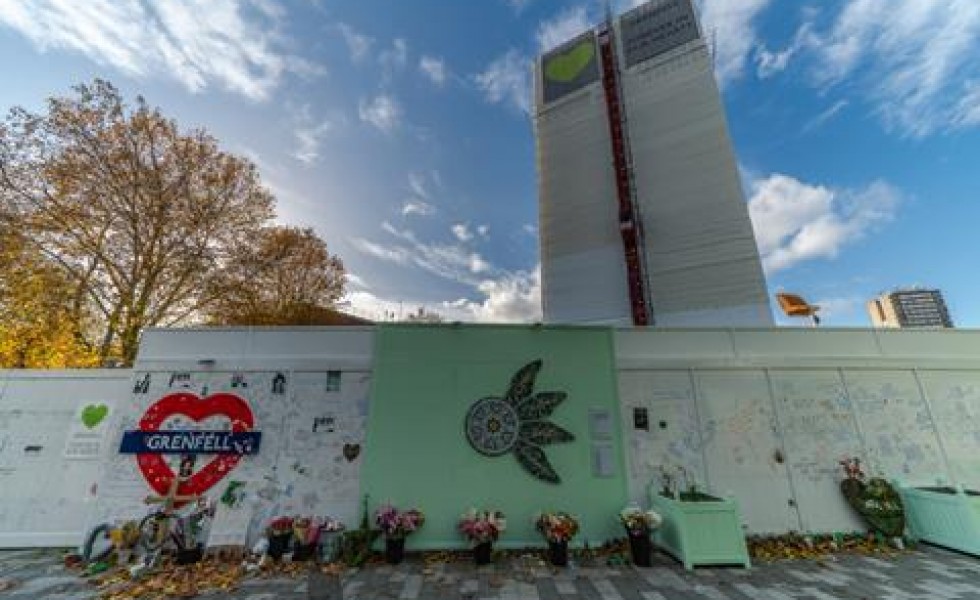Preventing Another Grenfell is Our Responsibility
13/11/24
The construction industry has a collective duty to rebuild public trust and ensure that a tragedy like Grenfell never happens again, writes Caroline Gumble.
"What does it feel like to be in an industry that kills people?" To be clear, that is not a view I hold – it was a question posed by someone outside our industry to one of my colleagues.
That question forces us to confront the responsibilities our work carries and the uncomfortable realities we are facing. The Grenfell Tower tragedy, where 72 people lost their lives, must never be forgotten and, sadly, will serve as a reminder of what can happen when safety and quality are compromised.
It has been a few weeks since the Grenfell Tower Inquiry's final report was published. By now, every construction professional should have read it or at least reviewed the recommendations – and taken time to process and reflect on them.
The report lays bare the failures that contributed to the catastrophe and its findings must serve as a sobering call to action for everyone in the industry.
At CIOB we recognise the importance of rebuilding public confidence. I emphasise this in my speeches at CIOB graduation ceremonies, welcoming new members but also reminding them of the responsibilities they hold. I want the construction industry to understand – right across the breadth of the sector – that we have a collective duty to ensure a tragedy like Grenfell never happens again.
The inquiry's recommendations provide a roadmap for the necessary changes, but it is up to us – industry leaders, government and our community of professionals – to implement them.
CIOB has long been advocating for many of these changes, including the establishment of a secretary of state for construction and the re-establishment of a chief construction adviser. These roles would provide much-needed oversight, leadership and direction.
Tackling the changes
I want to commend the efforts of Eddie Tuttle, our director of policy, external affairs and research, and his team who have worked on quality in construction policy and engagement for many years now. Their behind-the-scenes work, built on trust and long-standing relationships with government and industry stakeholders, has helped prepare us for this moment. Now it is our job – and that of the government – to ensure that the inquiry's recommendations are both responded to and acted upon, as necessary.
The work of Paul Nash, past president and co-chair of our quality implementation group, should also be commended. Paul serves on the industry safety steering group, led by Dame Judith Hackitt. His role, alongside CIOB's senior vice president Paul Gandy, who will chair our policy and external affairs board over this next critical year, ensures that we are well positioned to lead and support collaboration across the industry in responding to these challenges.
In terms of collaboration and collectively tackling the changes that need to be made, we can also draw on Paul Gandy's knowledge of the relationships with Build UK and the Construction Leadership Council.
In addition, we will also call on the experience of Ian Brant, former CIOB trustee, now driving several activities as deputy chair of the Construction Industry Council, a key interface for the professions as we ensure that the response to the report is both cohesive and helps make the changes that we all agree are necessary.
Our corporate plan, with its theme of modern professionalism, provides a solid foundation to address the inquiry's recommendations. One of the three key areas of focus is quality and safety and, as we prepare for our next strategic planning cycle, we will prioritise engaging with members to understand the practicalities and potential opportunities that come from emerging challenges.
Next steps
In the short term, CIOB is taking several steps in response to the inquiry's findings. We are reviewing our continuing professional development offer to ensure it remains relevant and accessible. In addition, we are using our many communication platforms, including CM, to promote the importance of competency and encourage more companies to join our company membership scheme, which demonstrates a firm commitment to quality, professionalism and the delivery of high standards.
We expect the industry to be energised and motivated by Dame Judith Hackitt's address at the Sir James Wates Lecture taking place in London in November. Her leadership on the post-Grenfell regulatory reforms has been both exemplary and vital and I expect her message will challenge the industry to keep pushing for higher safety and quality standards, even if not compelled to do so by legislation.
In addition to these initiatives, CIOB will soon be meeting with construction minister Sarah Jones MP to discuss CIOB's pre-election manifesto, which aligns with many of the government's priorities and covers areas such as safety, sustainability, professionalism and competence. I intend to play my part in ensuring that this important industry and the government work together towards a safer future.
The Grenfell Tower fire exposed the devastating consequences of negligence in our industry. We cannot undo the past but we can act now to prevent such a tragedy from ever happening again.
Our industry must rise to this challenge, with all of us placing safety, quality and professionalism at the forefront of everything we do – we have the serious and vital task of ensuring lives are safeguarded and that public trust is rebuilt through the work we deliver.
Caroline Gumble is CEO of CIOB.
Source: Preventing another Grenfell is our responsibility - Construction Management

